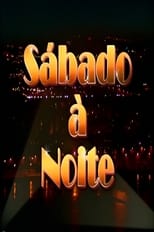Bonga Kuenda
¿Quién es Bonga Kuenda?
José Adelino Barceló de Carvalho was born in the province of Bengo, and left Angola when he was 23 years old to become a track and field athlete, becoming the Portuguese record holder for the 400 metres (Angola was at the time one of Portugal's five African colonies). He had already begun his singing career at the age of 15.
Carvalho abandoned athletics in 1972, concentrating solely on his music, and immediately became famous in his native Angola, as well as in Portugal. After the Carnation Revolution in April 1974, he would become a hit both with immigrants from the ex-Portuguese colonies, and Portuguese of both African and European descent. He has released over 30 albums, singing in Portuguese and traditional Angolan languages. His tracks are a mixture of Portuguese folk sounds, semba, kizomba and latin elements.
While Angola was still a Portuguese colony, Bonga was an outspoken supporter of independence. This led him to be exiled from Angola in the early 1970s.
At this time, Portugal was ruled by the authoritarian and conservative Estado Novo regime government, founded by Salazar. Barceló de Carvalho's status as a Portuguese star athlete allowed him the rare freedom of movement, which he used – under the name of Bonga Kuenda – to carry messages between exiled pro-independence African fighters and compatriots still in Angola. When the Portuguese government and its political police (P.I.D.E.) realised Bonga Kuenda and Barceló de Carvalho were the same man, Bonga was forced into exile in Rotterdam, where, in 1972, he definitively adopted the name Bonga and recorded his first record, Angola 72. His iconic track "Mona Ki Ngi Xica", which would feature on the soundtrack of Cédric Klapisch's 1996 film When the Cat's Away (Chacun cherche son chat), was introduced on this album. A warrant for his arrest was issued in Angola for the seditious lyrics of the album, forcing him to move nomadically between Germany, Belgium and France until Angola's independence from Portugal in 1975, brought about by the events of the Carnation Revolution. While in Europe, Bonga met other Portuguese-speaking musicians and adapted the sounds of semba to his already diverse music style. ...
Source: Article "Bonga (musician)" from Wikipedia in English, licensed under CC-BY-SA 3.0.
Trabajos destacados
Géneros más habituales en las series de Bonga Kuenda
Películas
Sin informaciónCompañeros de trabajo recientes de Bonga Kuenda
Las imágenes y retratos de actores y actrices mostrados en este sitio web son obtenidos de la base de datos pública de The Movie Database (TMDb), utilizada bajo los términos y condiciones de dicha plataforma. En caso de que alguna imagen o fotografía sea incorrecta, ofensiva, o pueda infringir derechos de imagen o copyright, puede ser editada o eliminada directamente en TMDb. Esto provocará su eliminación automática en este sitio web. Adicionalmente, si usted desea solicitar la eliminación de una imagen directamente en nuestro sitio web, puede utilizar el formulario de contacto ubicado al pie de la página. Atenderemos su solicitud de manera expedita y tomaremos las medidas necesarias para garantizar el cumplimiento de los derechos aplicables.
The images and portraits of actors and actresses displayed on this website are sourced from the public database The Movie Database (TMDb), used in accordance with its terms and conditions. If any image or photograph is incorrect, offensive, or may infringe image rights or copyright, it can be edited or removed directly on TMDb. This will automatically result in its removal from this website. Additionally, if you wish to request the removal of an image directly from our website, you may use the contact form located at the bottom of the page. We will promptly address your request and take the necessary measures to ensure compliance with applicable rights.




